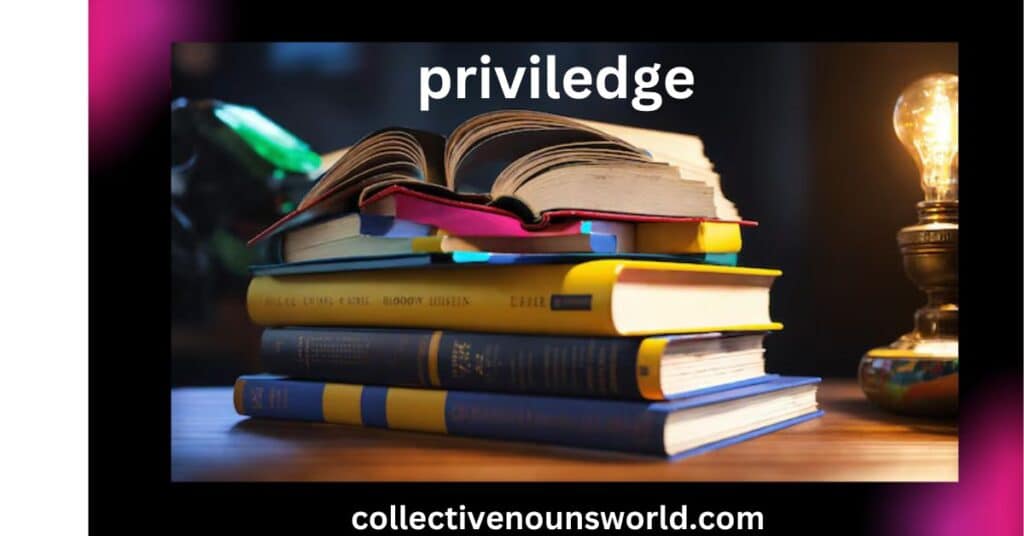The difference between “priviledge” and “privilege” may seem small, but it can make a big impact on your writing. While one is a common misspelling, the other carries the weight of special rights, advantages, and immunity that many people may take for granted.
Understanding the correct spelling of this word is more than just a grammar lesson—it’s about communicating clearly and confidently. Whether you’re writing professionally or casually, mastering the spelling of privilege ensures your message is both accurate and polished. Let’s dive into why this small mistake is more common than you might think, and how you can avoid it for good!
Understanding Priviledge and Privilege
Privilege: Definition and Usage
The word “privilege” refers to a special right, advantage, or immunity that some people or groups have. It’s not something everyone gets; it’s a benefit that is often unearned. For example, having access to quality healthcare is a privilege that not everyone enjoys. Privilege can also refer to social, educational, or economic advantages that certain people have simply because of their circumstances or position in society.
In many cases, privilege is used to describe unequal advantages that exist in social contexts. These advantages can be unequal because they are not available to everyone, but are often taken for granted by those who have them. For instance, growing up in a safe neighborhood or being able to travel freely are privileges that many of us may not fully recognize until we see others who don’t share these advantages.
Read more about Forrest Or Forest: The Right Spelling and When to Use Each
Priviledge: Definition and Usage
On the other hand, “priviledge” is a misspelling. This version of the word does not exist in the English language. Many people mistakenly add an extra “d” to privilege due to confusion with similar-sounding words that end in -ledge, such as knowledge or acknowledgment. This extra “d” is incorrect and leads to incorrect usage of the word.
This common misspelling often happens when people are unfamiliar with the word, or when they’ve seen other words like knowledge and mistakenly apply that spelling pattern to privilege. However, it’s important to know that priviledge is not an acceptable form in any context.
Side-by-Side Comparison: Priviledge vs. Privilege
When you compare priviledge to privilege, it’s clear that one is the correct form, and the other is a mistake. Here is a quick look at the differences:
| Aspect | Priviledge | Privilege |
| Definition | Not applicable, misspelled | Special right or advantage |
| Common Usage | Incorrect usage | Correct usage |
| Correct Spelling | Incorrect | Correct |
It’s clear from this comparison that priviledge is a common misspelling with no meaning, while privilege is the proper term. When using the word in writing, always choose privilege to ensure you’re communicating effectively.
Read more about Oversite vs oversight: Avoid Common Spelling Mistakes
Why the Misspelling Occurs?
The reason priviledge occurs as a misspelling can be traced to a few key factors. One reason is the confusion with other words that end in -ledge, such as knowledge and acknowledgment. The similarity in consonant combinations might lead someone to mistakenly assume that privilege should follow the same pattern.
Another reason for this misspelling is the uncommon usage of the word privilege in everyday conversation. Because it is not used as often as other more familiar words, people might not be as familiar with the correct spelling. This lack of exposure can make it easier to fall into the trap of writing “priviledge” instead of “privilege.”
Choosing the Right Word: Privilege vs. Priviledge
When you’re writing, choosing the right word is essential for effective communication. Using the correct spelling, like privilege, ensures that your message is clear and professional. If you accidentally write “priviledge,” it may confuse your readers and make your writing seem less polished. Always double-check your spelling to make sure you’re using privilege correctly.
Using the wrong spelling can negatively impact your communication skills. If readers see incorrect usage, they might doubt your attention to detail. Getting the spelling right shows that you care about your writing and your readers.
Everyday Usage Examples of “Privilege”
Understanding privilege in context can help you use it correctly. Here are some examples of how privilege appears in everyday sentences:
- “Having access to quality healthcare is a privilege that many people in the world do not have.”
- “Living in a safe neighborhood is a privilege that some people take for granted.”
- “It’s a privilege to be able to travel the world and experience new cultures.”
In all these cases, privilege is used to describe something special, a benefit that not everyone has. It’s important to keep these examples in mind as you write, so you can use the word properly in your own sentences.
Read more about Onsite Or On-Site: Key Differences Explained
How Do You Spell Privilege?
It’s simple: the correct spelling is always privilege. But what about the word privileged? When you use privilege as a verb (meaning to give someone a special right or advantage), it becomes privileged with a “d” at the end. For example:
- “She was privileged to attend the exclusive event.”
The word privileged can also describe someone who enjoys special rights or benefits. For example, you might say, “He comes from a privileged background.”
Be Confident About Grammar
One of the best ways to avoid misspelling privilege is to be confident in your grammar. Always double-check your writing and use grammar tools to help with spelling and grammar. Using tools like ProWritingAid can help you catch errors like priviledge and ensure your writing is flawless.
Examples of the Correct Spelling of Privilege in Sentences
Here are more examples of privilege in correct usage:
- “It’s a privilege to have such supportive friends.”
- “Living in a privileged country gives us many advantages.”
- “He felt privileged to be part of such an amazing project.”
As you can see, the word privilege fits naturally into different contexts, and it’s always spelled with an “i” before the “l.”
How ProWritingAid Can Help You Spell Privilege Correctly
If you’re unsure about your spelling, tools like ProWritingAid can help. These grammar checkers automatically highlight misspelled words and suggest corrections. Using ProWritingAid can help you catch common errors like misspelling privilege as priviledge, so you can write with confidence.
Grammar tools aren’t just for spelling—they also help with sentence structure, clarity, and style. This ensures that your writing is clear, accurate, and professional. By using these tools, you can avoid misspelled words and improve your overall writing skills.
Privilege or Priviledge? Which Is Correct?
Let’s review:
Privilege: What It Means and How to Use It
Privilege is a special right or advantage. It can refer to things like educational privilege, social benefits, or the right to enjoy immunity from certain obligations or restrictions. When used correctly, it adds clarity and depth to your writing.
Priviledge: Why It’s a Misspelling
The word priviledge is an incorrect spelling of privilege. This error occurs due to confusion with other similar words ending in -ledge, but it’s important to remember that priviledge is not valid. It’s always better to use privilege to ensure accuracy and professionalism in your writing.
Conclusion
The correct spelling is always privilege, not priviledge. While the misspelling is common, using the right form is essential for clear and professional writing. By paying attention to small details like this, you can improve your communication skills and avoid misunderstandings.
Remember,spelling matters! Double-check your writing to avoid misspelled words like priviledge. Using the correct spelling of privilege can elevate your writing and improve your communication skills. Consider using grammar tools like ProWritingAid to help with spelling and ensure that your writing is always top-notch. Happy writing!

Luna Jasper is an experienced blogger with a passion for language and grammar. At **Collective Nouns World**, she shares her expertise in exploring the fascinating world of collective nouns, making learning both engaging and fun. With years of writing and research under her belt, Luna’s insightful articles help readers understand and appreciate the English language.







